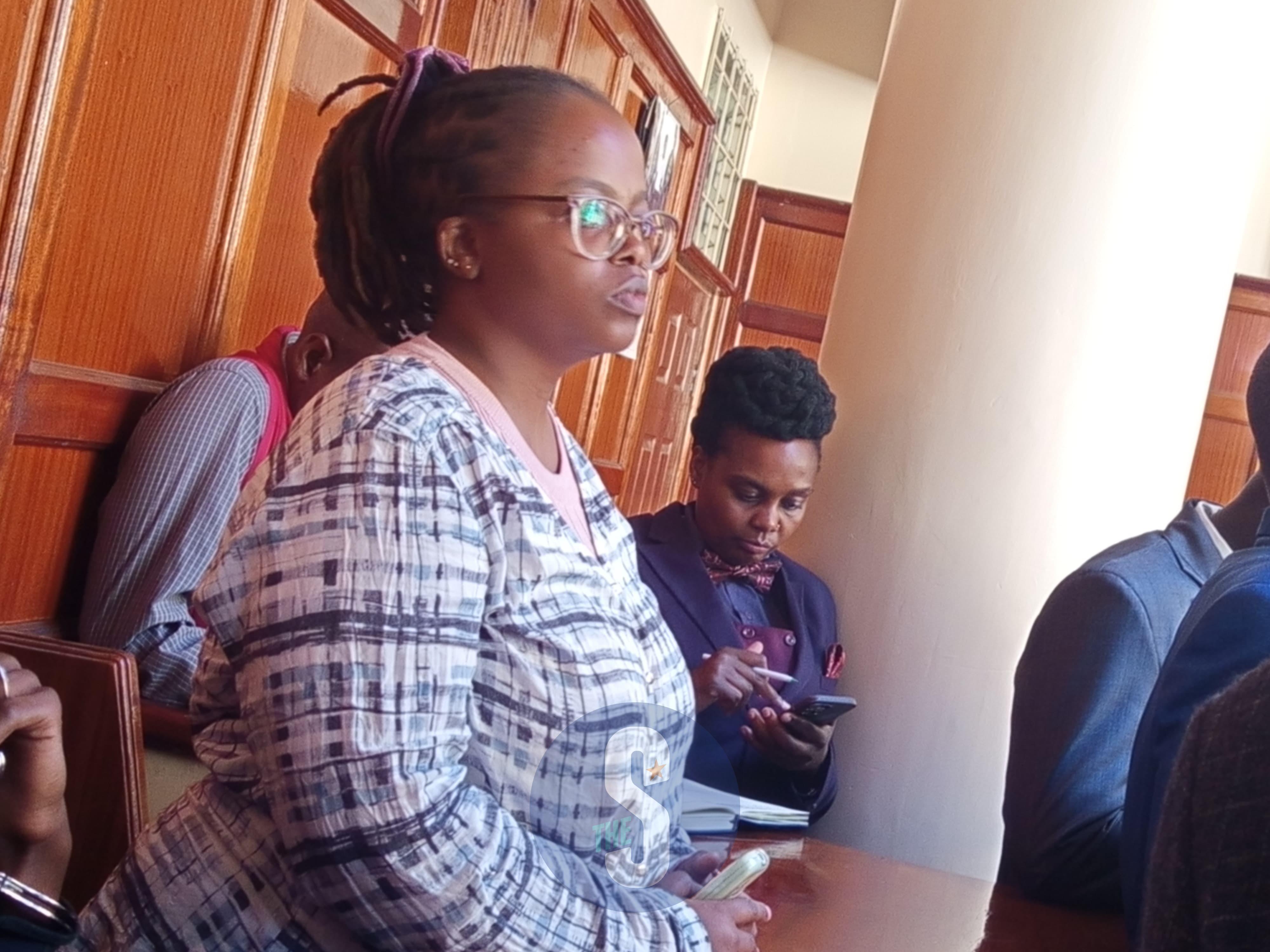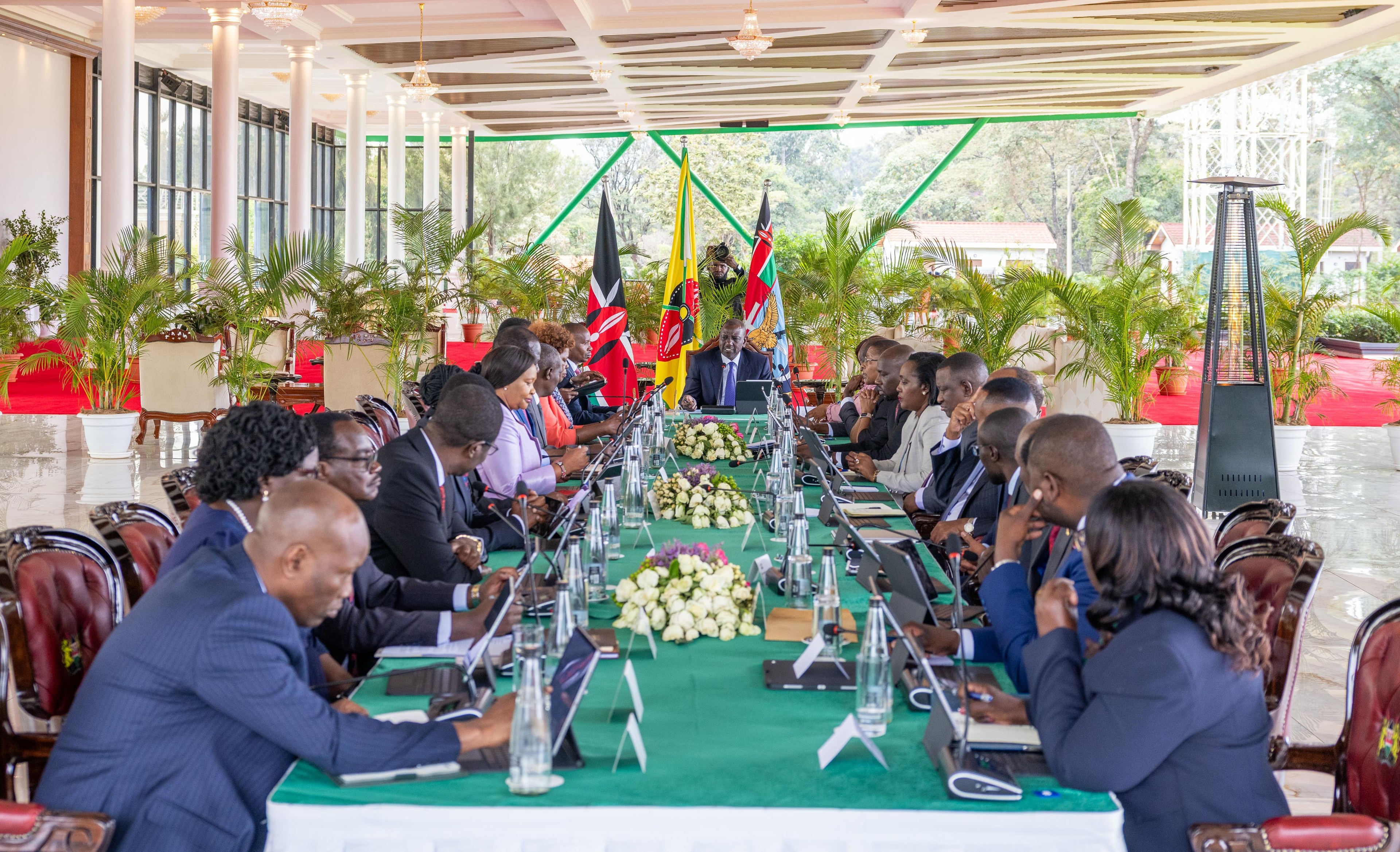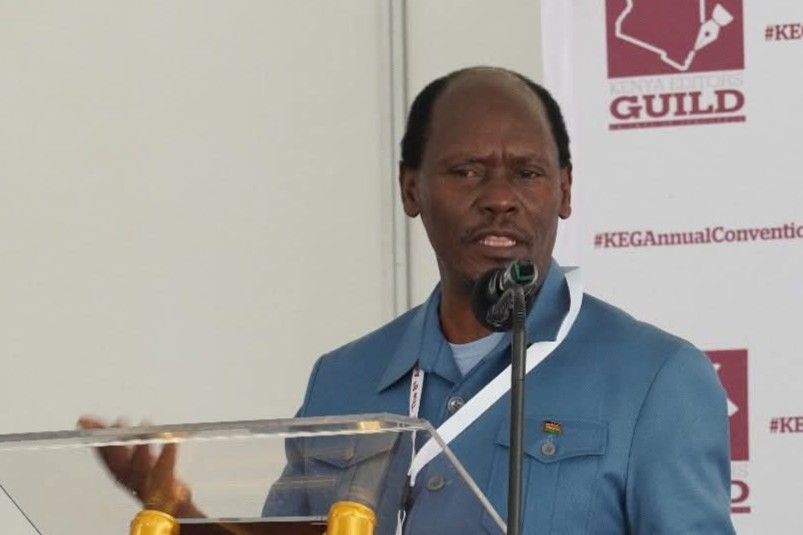

Web developer and activist Rose Njeri has vowed not to back
down or be intimidated following her arrest in connection with the anti-Finance Bill
2025 campaign.
In a media interview for the first time after being
released, Njeri said she committed no offence to warrant her detention.
She noted that the detention sought to intimidate her, given
that the authorities had no case against her.
"That is when they were preparing their charge sheet.
This means that for all those days that I was at the station, they had no
charges against me. That was an illegal detention," she said.
"You could see the errors that they made on the charge
sheet. They wrote that I was male, and there were typos. They know that they
have nothing on me. They are just infringing on my rights. I am just an
ordinary Kenyan, trying to hustle, and they came for me that way. I cannot back
down."
Njeri was arrested in connection with the creation of a civic
email and a website designed to enable
Kenyans to express opposition to the proposed Finance Bill 2025.
According to the charge sheet, Njeri was accused of
contravening section 16 of the Computer Misuse and Cyber Crime Act by
interfering with computer systems.
"Rose Njeri Tunguru: On the 19th day of May,2025, at
2001 hrs at an unknown location within the Republic of Kenya, hosted knowingly
made https://civicemail.netlify.app/ that automatically generated you and sent
a mass program emails at to [email protected] which is the
official systems of the finance committee, thereby interfering with the normal
functioning of the systems," read the charge sheet in part.
Her lawyer, led by former Chief Justice David Maraga, Wiper
Leader Kalonzo Musyoka and DAP leader Eugene Wamalwa, opposed the charges, describing them as defective.
Wiper leader Kalonzo Musyoka questioned the basis of the
charge, stating:
"If a crime is sensitising fellow Kenyans to say yes or
no to the proposed finance bill, what crime is that?"
According to the defence, the very purpose of the email
address was to invite citizen participation, and thus any member of the public
could have sent such emails.
Kalonzo argued that the charges are open-ended and fail to
meet the requirements of Articles 49 and 50 of the Constitution, as well as the
procedural safeguards under the Criminal Procedure Code.
The defence contended that Parliament’s email address was
established to encourage public feedback on the Finance Bill, and by
participating, Njeri was engaging in constitutionally protected civic activity.
“We are taken aback at how to respond to a charge when the
email address was created specifically to be used by members of the public,”
Kalonzo noted.
However, the prosecution, led by Victor Owiti, insisted that the charges should stand pending further proceedings.
Owiti argued that the questions raised by the defence, such
as whether Parliament intended the alleged acts to constitute an offence, are
issues that should be addressed at trial, not at this preliminary stage.
He emphasised that the charge sheet had provided sufficient
particulars as required under Section 134 of the Criminal Procedure Code.
“If you find that the prosecution in the charge sheet has
given reasonable information, then you cannot reject the charges,” Owiti
stated.
Milimani Magistrate Geoffrey Onsarigo released Njeri on a
personal bond of Sh100,000 and set June 20, 2025, as the date for the ruling on
whether Njeri will take a plea to the charges.













![[PHOTOS] Ruto present as NIS boss Noordin Haji's son weds](/_next/image?url=https%3A%2F%2Fcdn.radioafrica.digital%2Fimage%2F2025%2F11%2Ff8833a6a-7b6b-4e15-b378-8624f16917f0.jpg&w=3840&q=100)




